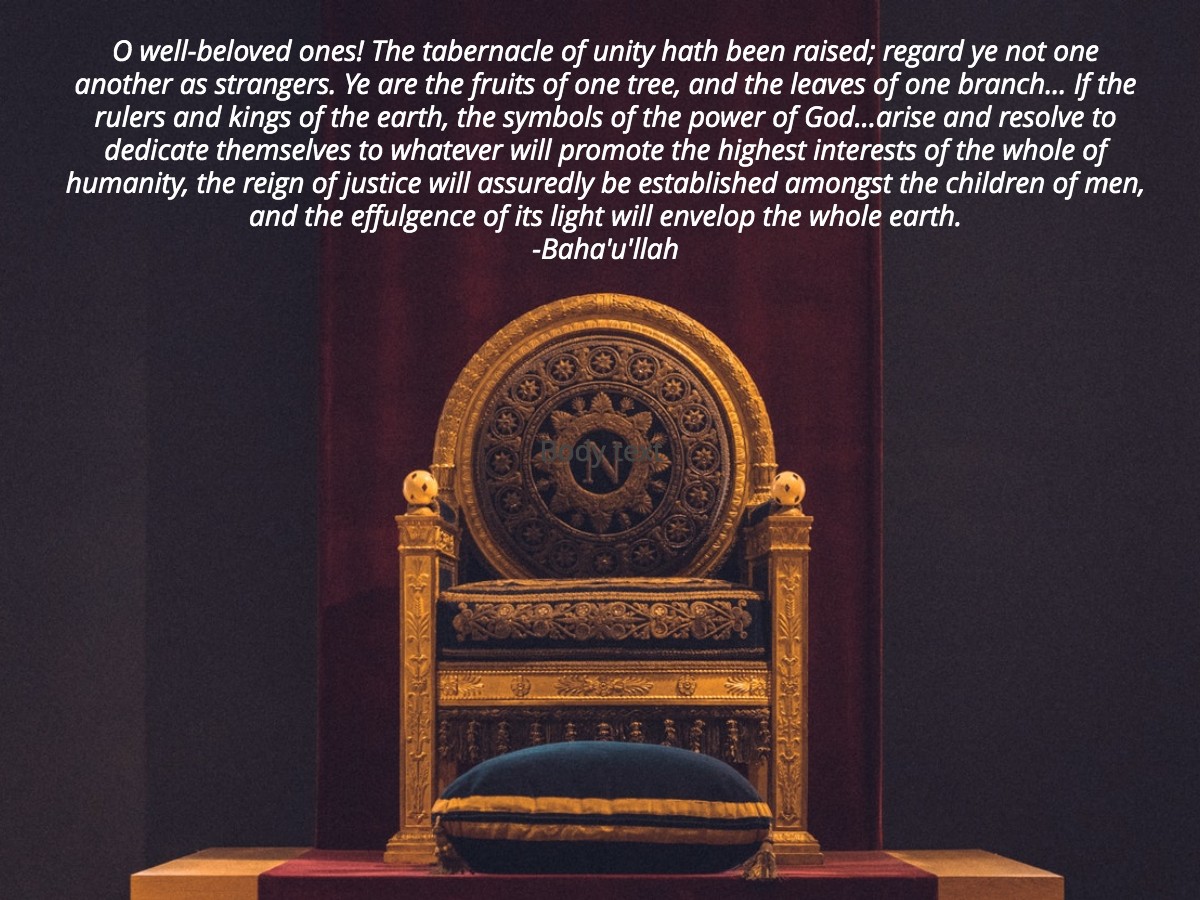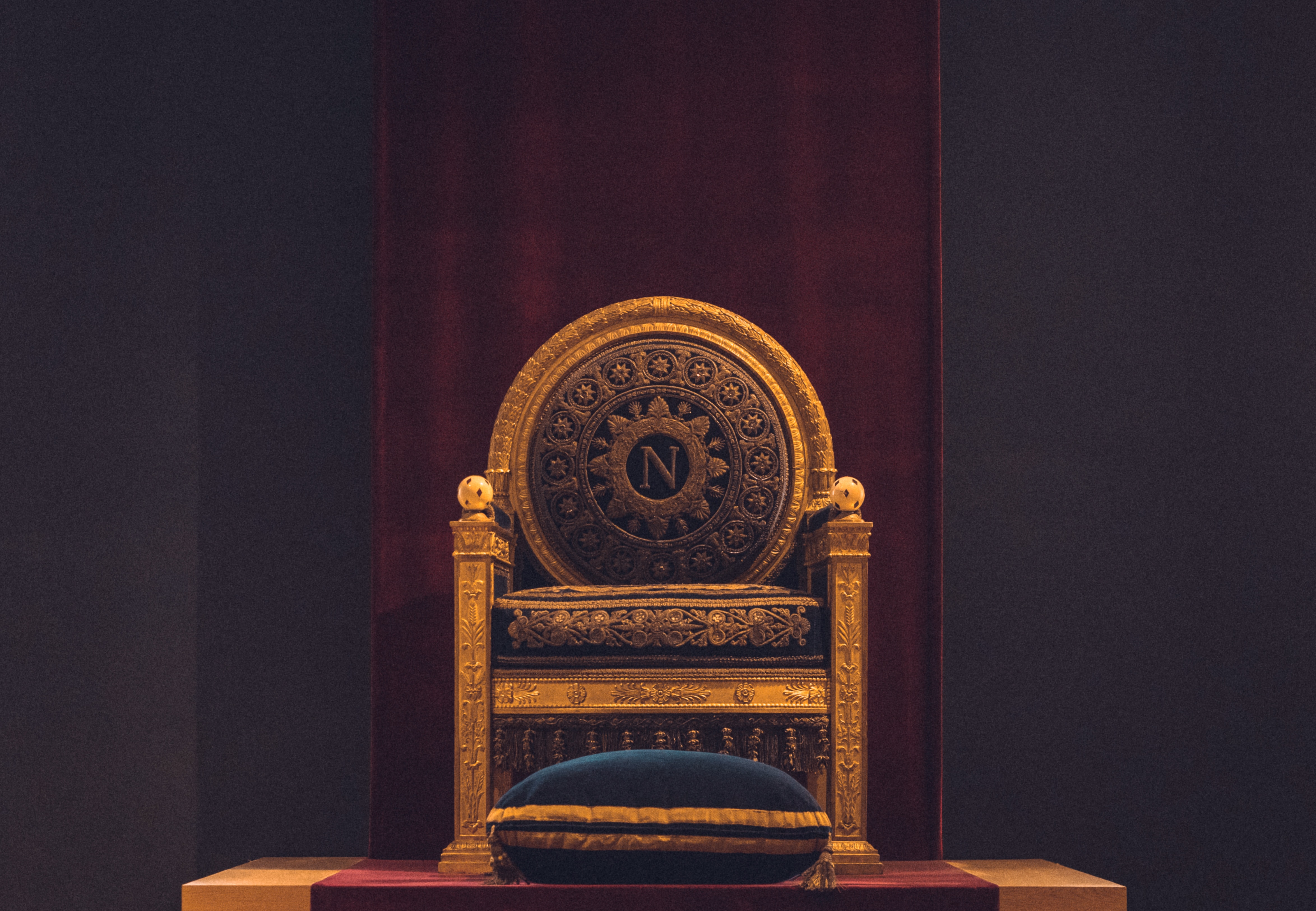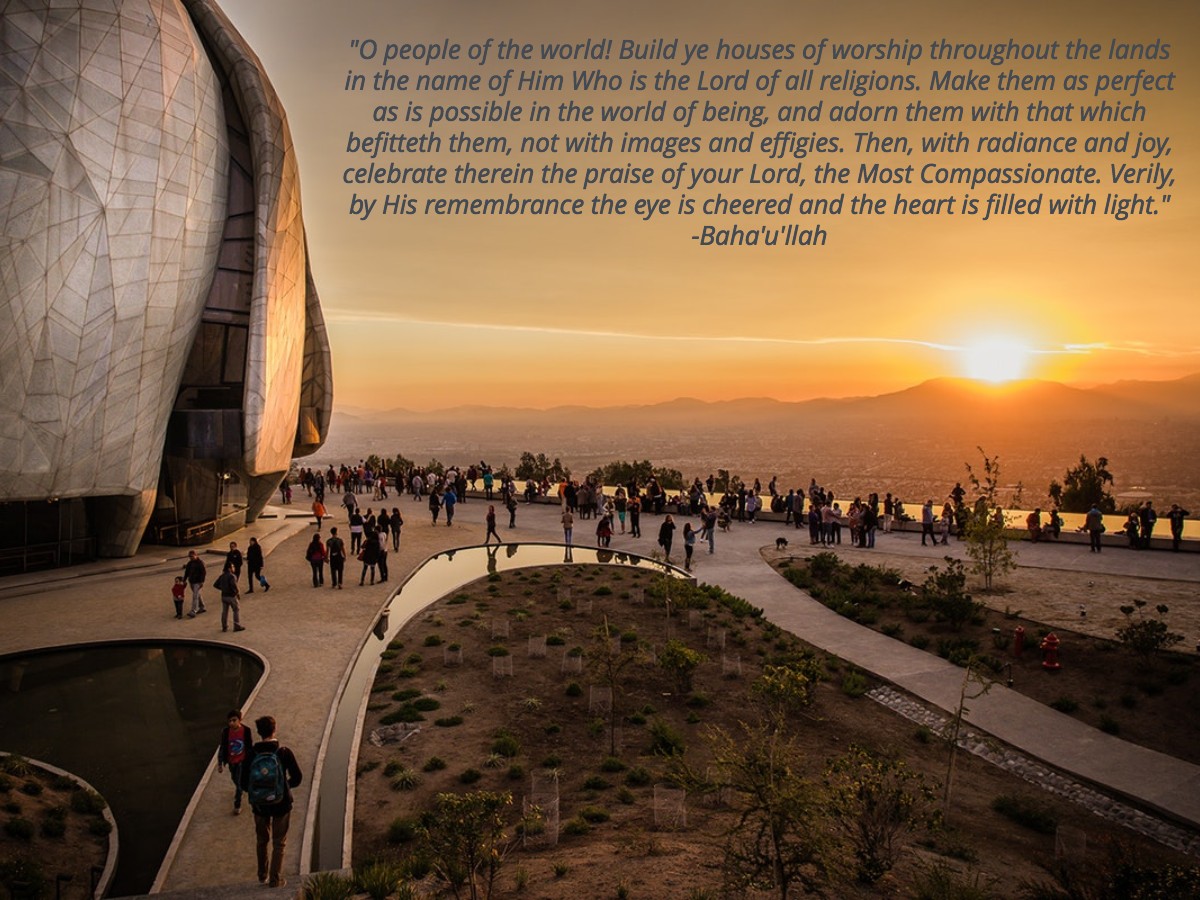With this post, we continue our discussion of the Gospels and the Revelation of Baha’u’llah, this time focusing on the relationship between the Manifestations of God and the religious leaders of their day.
One the common themes in each of the great scriptures of humankind- the Gospels, the Quran, and the Baha’i Writings- is the challenges that the Manifestations of God faced by the clergy and religious leaders of their time. This is a prominent theme in the Gospels. It is of course a very natural and understandable thing. When a new Manifestation comes into the world, He speaks with great authority and often counters the traditional interpretations of the previous revelation, so conflict with the traditional authorities is bound to happen. There are many passages in the Gospels where Jesus dialogues with the priests of His day, in that case mostly Jewish priests, and challenges their behavior and teaching of the people.
“But woe to you, scribes and Pharisees, hypocrites! For you shut the kingdom of heaven in people’s faces. For you neither enter yourselves nor allow those who would enter to go in…The scribes and the Pharisees sit on Moses’ seat, so do and observe whatever they tell you, but not the works they do. For they preach, but do not practice. They tie up heavy burdens, hard to bear, and lay them on people’s shoulders, but they themselves are not willing to move them with their finger. They do all their deeds to be seen by others. For they make their phylacteries broad and their fringes long, and they love the place of honor at feasts and the best seats in the synagogues and greetings in the marketplaces and being called rabbi by others.”
Muhammad similarly faced persecution and denial by the priests of His time, in that case many of them were pagan leaders, but also Jews and some Christians, and there are prominent verses in the Quran attesting to the challenges. It should also be noted that Muhammad urged tolerance of those religious communities and urged respect among His followers for their priests.
In the time of the Bab, He knew that His revelation and teachings were going to face severe persecution and it is reflected in His Writings. The Bab commented on many themes related to the acceptance and denial of the Revelations of God. His Revelation was to prepare the way for Baha’u’llah and so He outlined many of the “pitfalls” people encounter in comprehending a new revelation, so that His own followers would not get tripped up and miss it. In one well-known passage, He describes one of the cities in Persia- Isfahan- known for its university and theological learning, in which only an illiterate man- a sifter of wheat by profession- accepted the new revelation-
In the land of Isfahan, which to outward seeming is a great city, in every corner of whose seminaries are vast numbers of people regarded as divines and doctors, yet when the time came for inmost essences to be drawn forth, only its sifter of wheat donned the robe of discipleship . This is the mystery of what was uttered by the kindred of the Prophet Muḥammad…concerning this Revelation, saying that the abased shall be exalted and the exalted shall be abased.
Likewise in the Revelation of Him Whom God shall make manifest (Baha’u’llah), among those to whom it will never occur that they might merit the displeasure of God, and whose pious deeds will be exemplary unto everyone, there will be many who will become the personification of the nethermost fire itself, when they fail to embrace His Cause; while among the lowly servants whom no one would imagine to be of any merit, how great the number who will be honored with true faith and on whom the Fountainhead of generosity will bestow the robe of authority.
Jesus also told a parable of a landowner who was looking for workers in his vineyard. He hired some in the morning for one denarii, and later hired others in the afternoon for the same amount, even though they worked less as they were hired later in the day. The morning workers complained, but the landowner told them they had all agreed to the same amount. Jesus then said- “So the last will be first and the first will be last”. The interpretation seems to be that the workers hired early- who had to work the longest- were like the priests, and the workers hired late were like the lay people- and both were offered the same reward, no matter their “station” in society. Indeed, it is often the case, as with the “sifter of wheat” that those considered “last” in society are actually ‘first” in the eyes of God.
It is also notable how each of the Manifestations of God in the last two thousand years- Jesus, Muhammad, the Bab and Baha’u’llah- were all lay people who had no formal training in religion. Their revelations came from completely outside the religious establishment of their day.
There seems to be a really important spiritual lesson in all this- and that is that it is never appropriate to think of yourself as better than others because of religion. God seems to really want to drive this lesson home. In a beautiful passage known as the “Tablet of the True Seeker”, Baha’u’llah outlines the spiritual qualities of people who are seeking spiritual truth and understanding-
That seeker must, at all times, put his trust in God, must renounce the peoples of the earth, must detach himself from the world of dust, and cleave unto Him Who is the Lord of Lords. He must never seek to exalt himself above anyone, must wash away from the tablet of his heart every trace of pride and vainglory, must cling unto patience and resignation, observe silence and refrain from idle talk. For the tongue is a smoldering fire, and excess of speech a deadly poison. Material fire consumeth the body, whereas the fire of the tongue devoureth both heart and soul. The force of the former lasteth but for a time, whilst the effects of the latter endureth a century. That seeker should, also, regard backbiting as grievous error, and keep himself aloof from its dominion, inasmuch as backbiting quencheth the light of the heart, and extinguisheth the life of the soul. He should be content with little, and be freed from all inordinate desire…He should forgive the sinful, and never despise his low estate, for none knoweth what his own end shall be. How often hath a sinner attained, at the hour of death, to the essence of faith, and, quaffing the immortal draught, hath taken his flight unto the Concourse on high! And how often hath a devout believer, at the hour of his soul’s ascension, been so changed as to fall into the nethermost fire!
Several parts of that Tablet suggest that we need to develop a sense of humility and never consider ourselves better than others. In another passage, Baha’u’llah further explains this-
“They who are the beloved of God, in whatever place they gather and whomsoever they may meet, must evince, in their attitude towards God, and in the manner of their celebration of His praise and glory, such humility and submissiveness that every atom of the dust beneath their feet may attest the depth of their devotion. The conversation carried by these holy souls should be informed with such power that these same atoms of dust will be thrilled by its influence. They should conduct themselves in such manner that the earth upon which they tread may never be allowed to address to them such words as these: “I am to be preferred above you. For witness, how patient I am in bearing the burden which the husbandman layeth upon me. I am the instrument that continually imparteth unto all beings the blessings with which He Who is the Source of all grace hath entrusted me. Notwithstanding the honor conferred upon me, and the unnumbered evidences of my wealth—a wealth that supplieth the needs of all creation—behold the measure of my humility, witness with what absolute submissiveness I allow myself to be trodden beneath the feet of men….”
As Christ said,” Whoever exalts himself will be humbled, and whoever humbles himself will be exalted”. Indeed, much of the criticism towards the priests of Their day, in all the great scriptures, centers around their haughtiness and lack of humility.
We started this post with how it is often religious leaders who contend with the revelations of God when they come, and some of the strongest passages in the world’s scriptures reflect these challenges. We could mistakenly conclude that all religious leaders- or even all leaders of thought generally- should be looked upon with suspicion. Such an “anti-intellectual” or “anti-clerical” stance is also specifically countered by Baha’u’llah-
O people of God! Righteous men of learning who dedicate themselves to the guidance of others and are freed and well guarded from the promptings of a base and covetous nature are, in the sight of Him Who is the Desire of the world, stars of the heaven of true knowledge. It is essential to treat them with deference. They are indeed fountains of soft-flowing water, stars that shine resplendent, fruits of the blessed Tree, exponents of celestial power, and oceans of heavenly wisdom. Happy is he that followeth them.
This Wronged One hath invariably treated the wise with affection. By the wise is meant men whose knowledge is not confined to mere words and whose lives have been fruitful and have produced enduring results. It is incumbent upon everyone to honour these blessed souls. Happy are they that observe God’s precepts; happy are they that have recognized the Truth; happy are they that judge with fairness in all matters and hold fast to the Cord of My inviolable Justice.
Baha’u’llah eliminated priesthood in his revelation and the leadership of His religion is placed in the hands of elected councils- “Houses of Justice”. One can appreciate how priests and other religious leaders were necessary in the earlier revelations, as people were largely illiterate and it was often the religious schools who trained the children and promoted learning. Religiously oriented scholars were also among the first scientists in the scientific revolution of the 16th and 17th centuries. The Islamic scholars and priests created philosophical schools of great merit, to the point where even one of the Popes trained there. Indeed, our civilization today was in some ways built by these religious institutions. (Think of all the universities and hospitals of the world with religious titles, reflecting that they were founded by religious organizations)
While encouraging His followers to respect the “divines and learned”, Baha’u’llah also let it be known that the days of priests (and kings) holding sway over the people would be ending. In a famous passage, He declares- “From two ranks of people hath power been seized, kings and ecclesiastics (priests).” And in a similar passage, He states- “O concourse of divines! Ye shall not henceforward behold yourselves possessed of any power, inasmuch as We have seized it from you, and destined it for such as have believed in God, the One, the All-Powerful, the Almighty, the Unconstrained.”
Baha’u’llah referred to the decline of the authority of religious leaders as the “falling of stars” and explained that it was one of the signs that Jesus was referring to in a passage from the Gospel of Matthew predicting His return- “But in those days, the sun will be darkened and the moon will not give its light, the stars will fall from the sky, and the heavenly bodies will be shaken”. At the end of a revelation, when the religion no longer has force and has been corrupted, the “sun of truth” is darkened, and the religious leaders- the “stars”- no longer occupy the lofty place of wisdom- they have “fallen”- a new revelation comes to awaken humanity and the “heaven of divine revelation” is renewed.
Baha’u’llah also suggested that theology should no longer be someone’s profession- “The pious deeds of the monks and priests among the followers of the Spirit (Christ)…are remembered in His presence. In this Day, however, let them give up the life of seclusion and direct their steps towards the open world and busy themselves with that which will profit themselves and others. We have granted them leave to enter into wedlock that they may bring forth one who will make mention of God, the Lord of the seen and the unseen, the Lord of the Exalted Throne.”
He also re-defined what learning we should pursue, focusing on those studies that lead to the advancement of civilization and development of our understanding of the world-
“The learned of the day must direct the people to acquire those branches of knowledge which are of use, that both the learned themselves and the generality of mankind may derive benefits therefrom. Such academic pursuits as begin and end in words alone have never been and will never be of any worth. The majority of Persia’s learned doctors devote all their lives to the study of a philosophy the ultimate yield of which is nothing but words.”
He said we should study sciences “which redound to the progress and advancement of the people”. Baha’u’llah emphasized the promotion of knowledge and said it was obligatory for all people to acquire it to the extent of their abilities-
Knowledge is as wings to man’s life, and a ladder for his ascent. Its acquisition is incumbent upon everyone. The knowledge of such sciences, however, should be acquired as can profit the peoples of the earth, and not those which begin with words and end with words. Great indeed is the claim of scientists and craftsmen on the peoples of the world…. In truth, knowledge is a veritable treasure for man, and a source of glory, of bounty, of joy, of exaltation, of cheer and gladness unto him. Thus hath the Tongue of Grandeur spoken in this Most Great Prison.
This ‘democratization’ of learning is a major feature of His revelation- “We shall cause wisdom to spread amongst the people”. A world where everyone works to acquire knowledge, where we all regard each other as brothers and sisters, where everyone works together for the building of true community- this appears to be the standard we are called to strive for. In many ways, it reflects what Jesus told us those so many years ago-
But you are not to be called rabbi, for you have one teacher, and you are all brothers. And call no man your father on earth, for you have one Father, who is in heaven. Neither be called instructors, for you have one instructor, the Christ. The greatest among you shall be your servant. Whoever exalts himself will be humbled, and whoever humbles himself will be exalted.
Next post in this series- Sovereignty







